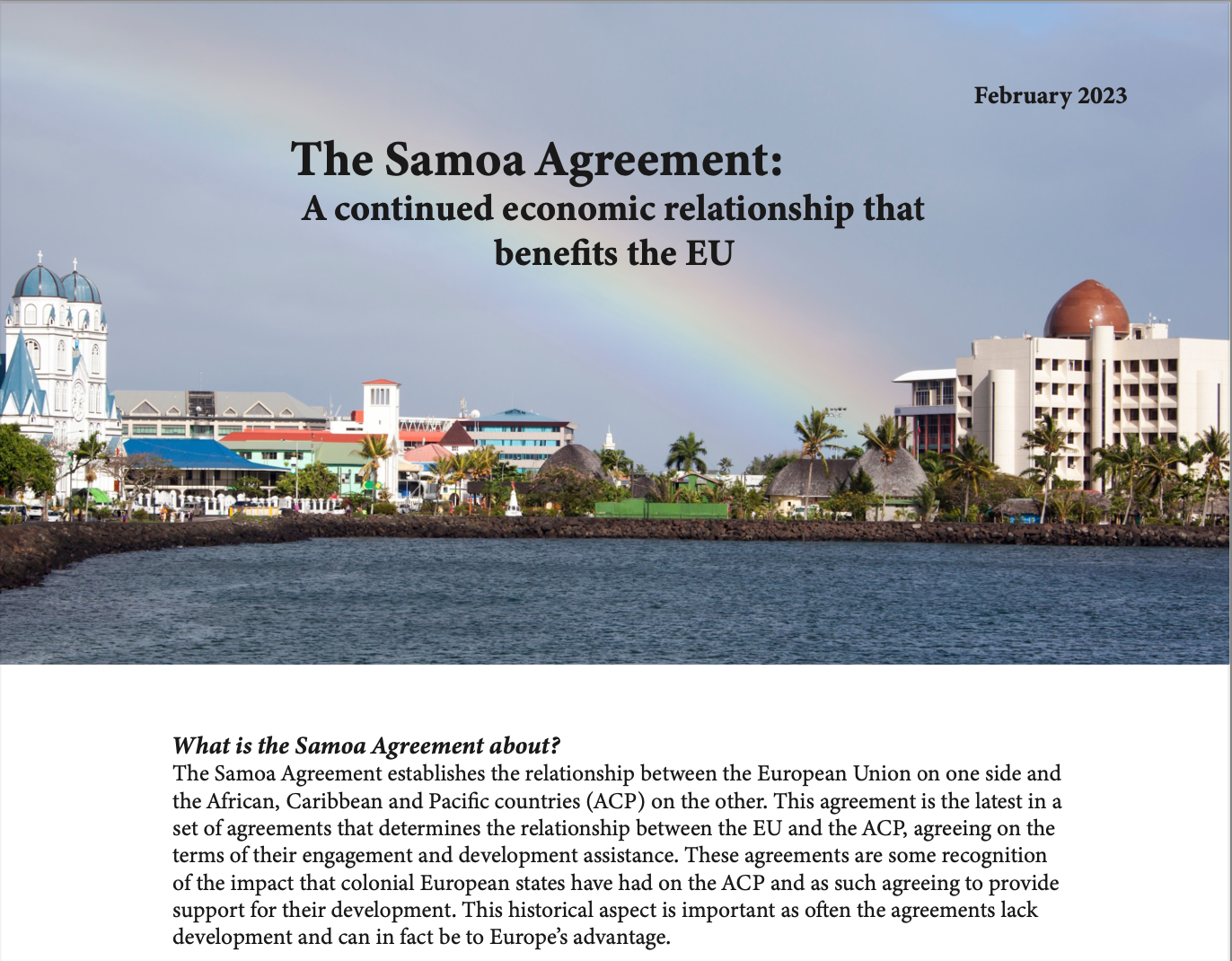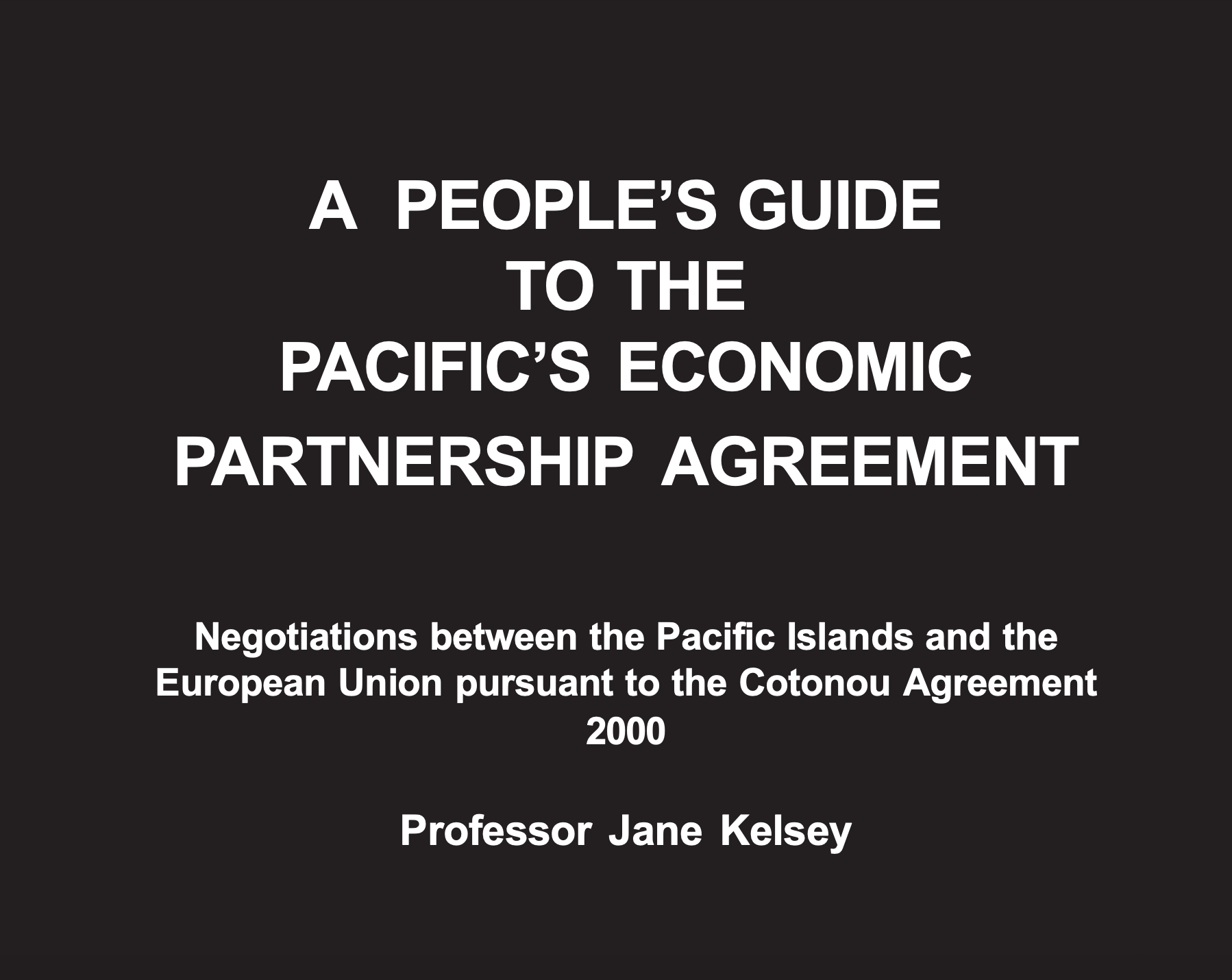
European Union Trade
In 2001 negotiations started on the Economic Partnership Agreements (EPAs) between the Pacific Island Countries and the European Union, and were sold as a development agreement for the Pacific countries. After years of negotiations and the EU insisting on a 2007 deadline, Papua New Guinea and Fiji signed onto the interim-EPAs (iEPAs) to maintain market access for the fish cannery and sugar industries respectively.
The iEPAs, however, are full of many contentious issues that the remaining Pacific Island Countries want to see remedied. Negotiations stalled, largely on account of the Pacific refusing to negotiate access to their fisheries as part of the EPAs, and the EU putting a 3-year hiatus on negotiations to allow the Pacific to consider their positions.
The iEPAs contain many troubling commitments that PANG and other civil society organisations have voiced opposition to. More information about the EPAs and what they mean for Pacific peoples can been found below.
In 2020, the European Union renegotiated its relationship with the Pacific as part of the Post-Cotonou negotiations. This would set out the aims, aid priorities, and terms of the relationship between the EU and the Pacific for the next 20 years. These negotiations replicated the existing asymmetries in the relationship, aimed to reform Pacific economies in the interests of private business, include binding commitments without detail, and limits the ability of Pacific Island governments to regulate their economies.
The Post-Cotonou outcome, known as the Samoa Agreement, was finalised in 2020 and is expected to be signed by Leaders before mid 2023.
-

The Samoa Agreement Briefing Paper
The Samoa Agreement is set to be ratified in mid-2023. This briefing paper explains what it is and why it continues the unequal relationship between the EU and the Pacific Island Countries.
-

Samoa Agreement: Foundation Agreement Analysis
The Foundation Agreement established the over all framework for the Samoa Agreement. This analysis looks at Title IV: Inclusive Sustainable and Economic Growth and Development and raises concerns about the many binding commitments that will benefit EU businesses.
-

Samoa Agreement: Pacific Region Protocol Analysis
The Pacific Region Protocol is the component of the Samoa Agreement that focuses specifically on what the agreement means for Pacific Island Countries. This analysis highlights how these commitments will be used by the EU to push for neoliberal economic reform in the PICs.
-

A Peoples Guide to the EPA
This report uses a question and answer format to provide churches, NGOs, unions, politicians, and other activists with the knowledge to understand the process and agendas of negotiating the EPAs.
-

Social Impact Assessment of the EPA
This report is a social impact assessment of the Economic Partnership Agreement for the Pacific Islands Forum Secretariat.

